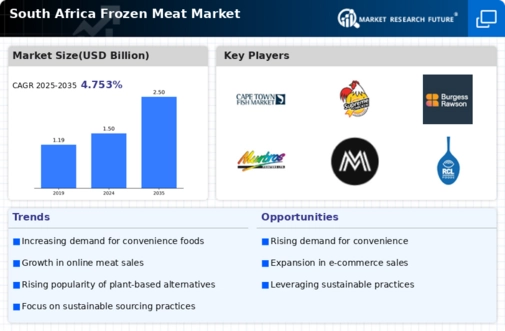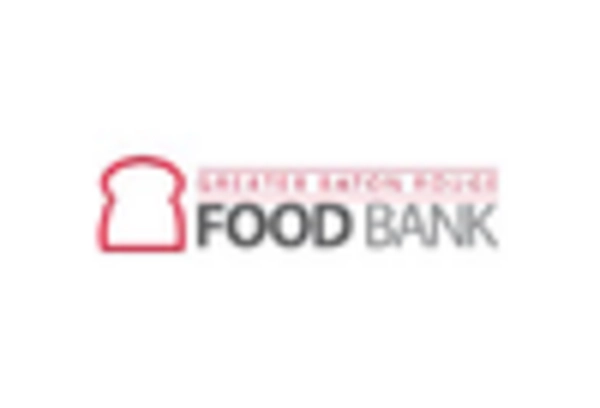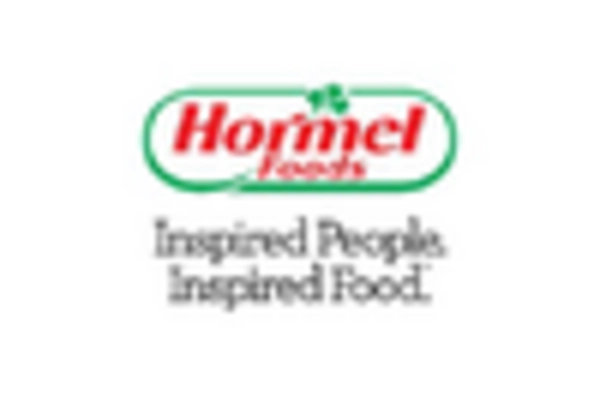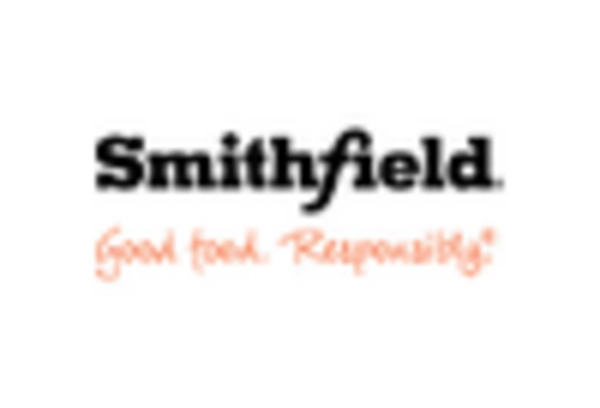Increasing Urbanization
The trend of urbanization in South Africa appears to be a significant driver for the frozen meat market. As more individuals migrate to urban areas, the demand for convenient food options rises. Urban consumers often lead busy lifestyles, which increases their reliance on frozen meat products that offer quick meal solutions. According to recent data, urban areas in South Africa have seen a population growth of approximately 2.5% annually, which correlates with a growing market for frozen meat. This demographic shift suggests that the frozen meat market must adapt to the changing preferences of urban consumers, who prioritize convenience and accessibility in their food choices.
Rising Disposable Incomes
The increase in disposable incomes among South African households is likely to influence the frozen meat market positively. As consumers have more financial resources, they tend to spend more on quality food products, including frozen meats. Reports indicate that the average household income in South Africa has risen by about 5% over the past few years, allowing families to invest in premium frozen meat options. This trend suggests that the frozen meat market could benefit from targeting higher-income segments, offering a range of products that cater to evolving consumer preferences for quality and variety.
Expansion of Retail Channels
The expansion of retail channels in South Africa is a crucial driver for the frozen meat market. The growth of supermarkets, hypermarkets, and online grocery platforms has made frozen meat products more accessible to consumers. Recent statistics show that the number of retail outlets offering frozen meat has increased by 20% over the last five years. This expansion suggests that the frozen meat market can leverage these retail developments to enhance distribution and reach a broader customer base. As more consumers turn to these retail channels for their grocery needs, the frozen meat market is likely to experience sustained growth.
Evolving Consumer Preferences
Consumer preferences in South Africa are shifting towards more diverse and high-quality food options, which is likely to impact the frozen meat market. There is a growing interest in gourmet and specialty frozen meat products, as consumers seek unique flavors and premium quality. This trend is supported by market data indicating that sales of specialty frozen meats have increased by approximately 15% in recent years. The frozen meat market must respond to these evolving tastes by expanding product lines and enhancing marketing strategies to attract discerning consumers who prioritize quality and variety.
Focus on Food Safety and Quality
The emphasis on food safety and quality in South Africa is becoming increasingly relevant for the frozen meat market. Consumers are becoming more aware of food safety standards and are demanding higher quality products. Regulatory bodies have implemented stricter guidelines for food safety, which impacts the frozen meat market. Data indicates that compliance with these standards has improved consumer trust, leading to a potential increase in sales. As the market evolves, companies that prioritize food safety and quality assurance are likely to gain a competitive edge, appealing to health-conscious consumers.
















